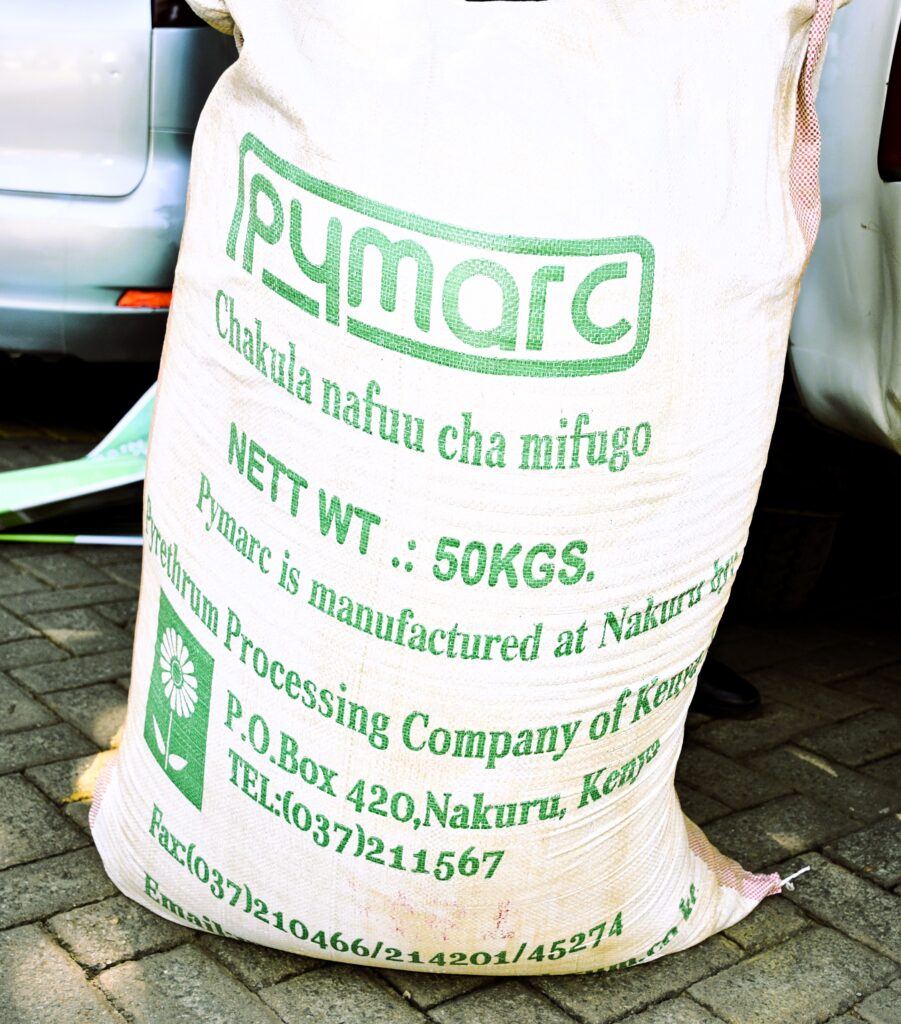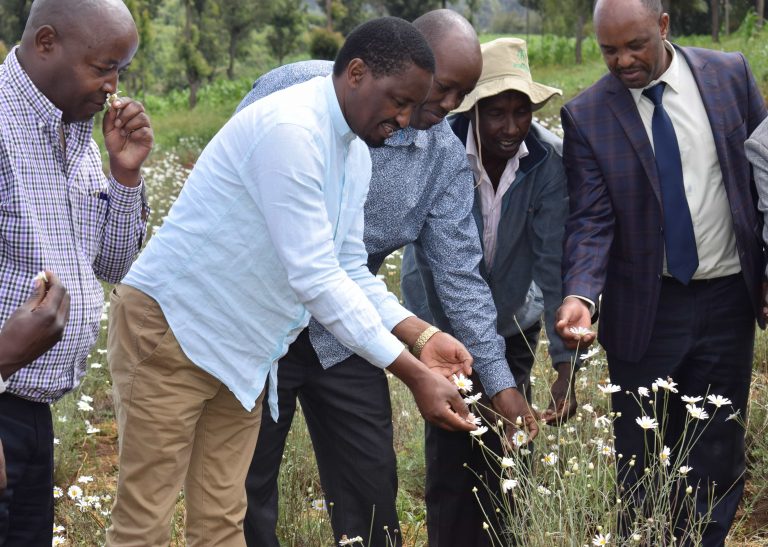By Kimuri Mwangi
Globally, there is a growing demand for safe and natural insecticides and pesticides, including pyrethrum-based products. This is attributed to, among others, health & environmental concerns where consumers, farmers, and policymakers are increasingly raising awareness of the harmful effects of synthetic pesticides, linked to cancer, neurological problems, and ecological harm. There is also a strong movement towards organic farming and eco-conscious farming, and pyrethrum, being plant-derived and biodegradable, fits this market perfectly.
The Pyrethrum Processing Company of Kenya (PPCK) has not been left behind in utilizing this opportunity. The state-owned organisation has been working on a revival plan and is mandated solely to produce quality seeds and quality seedlings, supplied and distributed globally. It also has the mandate of processing or adding value to dried pyrethrum flowers to produce final products, refining the extract for international sale, and creating value-added products from pyrethrum.

PPCK has made a comeback from its difficult past and is now processing and making quality pyrethrum seeds as well as pyrethrum seedlings. Collins Omondi, the Assistant Product Research & Development Officer at PPCK, says that in the wake of the usage of safe insecticides and pest control, PPCK stands a better chance of coming back and regaining its past glory.
“Pyrethrum is a safe, eco-friendly product that can flush out insects from their hiding places. It repels insects, and it also has the knock-down and kill ability of insects. It also has a broad spectrum, which means even the slightest concentration of pyrethrum extract can kill and knock down insects. Our products are safe, environmentally friendly, and very effective,” says Omondi.
He adds that currently, in the 19 counties that grow pyrethrum, PPCK has field officers who educate farmers on the best agronomic practices for productive pyrethrum farming. They also collect dried flowers from farmers, paying a down payment of KShs 300 per kg.
“We encourage all to engage in pyrethrum farming simply because the returns are good. A kilo runs from KShs 300 shillings to around KShs 700 shillings, based on the quantity and the quality of the dried pyrethrum flowers. If a farmer has 100 kgs of dried flowers, that’s around KShs 30,000 down payments. The remaining amount is paid after the analysis of his or her pyrethrum content from those dried flowers,” opines Omondi.
PPCK has several products in the market. One of them is “Pyagro”, which is used in the horticultural sector. Omondi says this is a safe product for those engaged in farming and exporting produce. “We know currently, the global market or the world population is advocating for the safe use of insecticides. Insecticides with zero residues, insecticides with zero resistance, insecticides that don’t harm the environment. So, pyrethrum products have all these attributes. They don’t harm the environment, residue levels are zero, and they are also very effective. In the past, zero resistance has been reported on the usage of pyrethrum products. This product kills insects that attack crop pests in the agricultural sector like thrips, white flies, fruit flies, Diamond Back Moth, red spider mites, mealy bugs, tuta absoluta, and any other pest that attacks either tomato, kale, flowers, carnations, coffee, tea, etc.”
The other product is “Pareto Roach Spray”, which was recently developed and used for the control of cockroaches and bedbugs.
“Pymos” is another product specifically for indoor and outdoor spray against adult mosquitoes, while “Parasol” is used indoors against adult mosquitoes.

PPCK has also ventured into the livestock feeds sector with a product christened “Pymarc” made from the residues of pyrethrum flower extraction. It’s used as an animal feed supplement and has a high energy content of around 56 per cent and a high protein content of around 13 per cent, with mineral oils and vitamins.
“When used, it can deworm the livestock by removing the internal parasites and also improve the general appearance of cattle. We can produce all these products because in pyrethrum flower processing, nothing goes to waste,” says Omondi. “We have a wide range of products in the pipeline, including mosquito coils, repellents, shampoos and mosquito dust, and currently research is ongoing.” Their factory is in Nakuru




